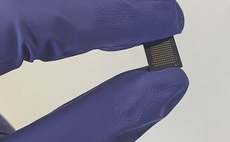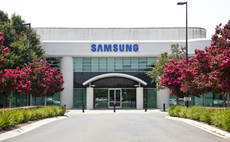Samsung uses ARM Mali graphics processing in latest Exynos 5 in preference to Imagination's PowerVR
ARM has beaten its UK-based rival Imagination Technologies to supply graphics technology for smartphone and tablet semiconductors after winning over hardware giant Samsung. The South Korean comp...
To continue reading this article...
Join Computing
- Unlimited access to real-time news, analysis and opinion from the technology industry
- Receive important and breaking news in our daily newsletter
- Be the first to hear about our events and awards programmes
- Join live member only interviews with IT leaders at the ‘IT Lounge’; your chance to ask your burning tech questions and have them answered
- Access to the Computing Delta hub providing market intelligence and research
- Receive our members-only newsletter with exclusive opinion pieces from senior IT Leaders





















